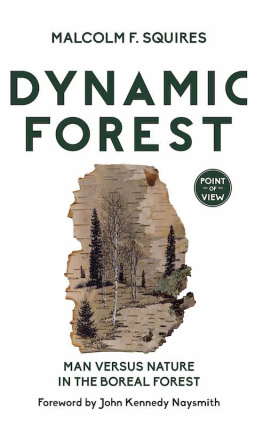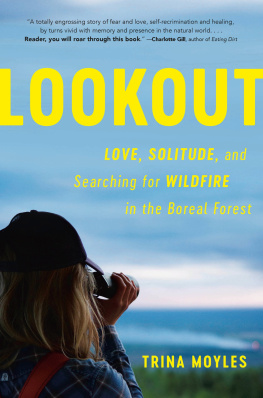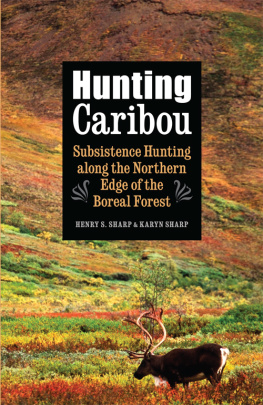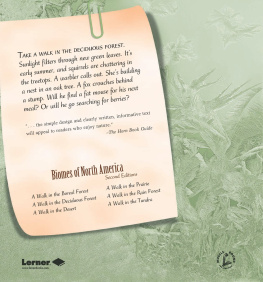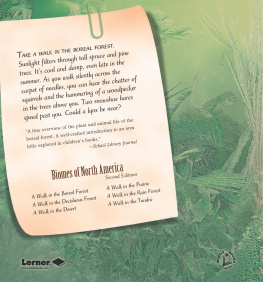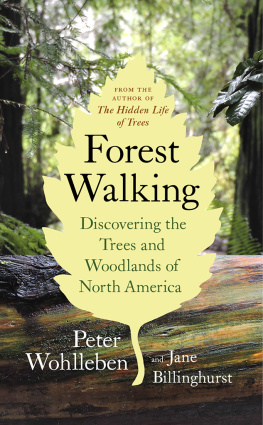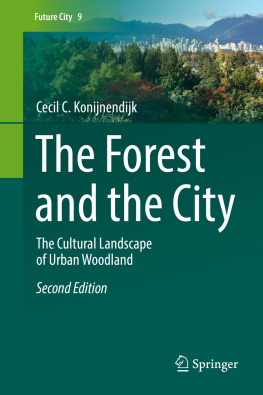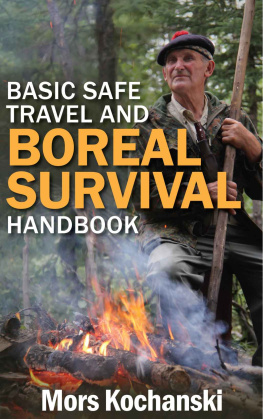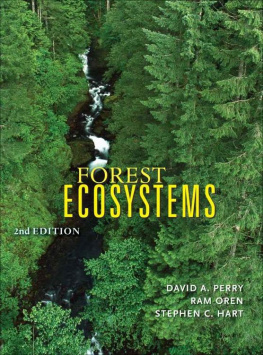Dedication
To Muriel, who has shared my love for her with my love for the forest
Epigraph
The wisdom in nature is distinguished
from that in man by the co-instantaneity
of the plan and the execution, the
thought and the product are one, or
are given at once
Samuel Taylor Coleridge
Foreword
T his book, Dynamic Forest , is the product of an experienced foresters perspective on a significant area of Canadas vast boreal forest, which in turn is typical of boreal forests indigenous to northern regions around the world.
The deep understanding that Mac Squires acquired of the boreal forest is the product of more than six decades of close association with it. An association that began as a boy growing up in a forest community in Newfoundland, where he spent much of his time roaming the forest and, as he says, observing it going about its business. With that background, it was natural that he would choose to study forest science at university. A choice which in turn led to a very successful career as a professional forester, one characterized by his first-hand understanding of the boreal forest community.
The business Mac refers to stems largely from the connectedness of trees, water, air, and soil. A recent study of Canadas boreal forest suggests that the collective value of that connectedness, when quantified in terms of carbon storage, flood control, and water filtering, is in the order of $700 billion annually. By comparison, the average annual value of renewable and non-renewable products from Canadas boreal forest that flow through the market place is roughly 10 percent of that figure.
Going about its business, to be sure, and that study pertains only to Canada and does not include any of the boreal forests elsewhere in the world. Twenty-first century forests, considered on a global scale, have become invaluable.
A feature of Mac Squires career in recent years has been his ability and willingness to communicate with the public on a broad spectrum of forestry topics, ranging from understanding how the forest works, to forest management strategies and initiatives directed at ensuring healthy forests in the future. An example of his success at reaching out to the larger community is the series of some sixty articles that he wrote over a three-year period for publication in a northwestern Ontario daily newspaper.
The considerable response that the published columns elicited ranged from appreciation for improving the readers understanding of the natural forces inherent in the forest to thanks for helping readers gain an informed view regarding the effects of human intervention and subsequent efforts to maintain productive forest land. Not all readers supported the nature and extent of the latter. In Macs view, that was fine. He felt that the purpose of the articles was to facilitate productive discussion based on correct information. That was happening.
One concern expressed by many who read Macs columns was that the value of these newspaper articles was being limited as they were being read by a relatively small number of readers. It was frequently suggested that if they were published in book form, the potential for reaching a substantial number of readers could be attained. The book was seen as a step toward increasing societys awareness of the importance of the globes forests. We are fortunate indeed that Dundurn Press has done just that.
The philosopher and poet George Santayana once said, The earth makes music for those who listen. Now sit back and enjoy learning about some of the music Mac has heard during a lifetime of listening.
John Naysmith R.P.F. (Retd) is a Lakehead University Fellow and recipient of a Charles Bullard Fellowship from Harvard. In his five-decade-long career, he served as a company logging superintendent in northern Ontario; chief of the Water, Forest and Land Division, Yukon and NWT; founding chair of Ontarios Forestry Futures Trust Committee; founding dean of Lakehead Universitys Faculty of Forestry; and as Canadas representative on the United Nations Advisory Committee on Forestry Education.
Introduction
T he boreal forest is constantly changing, often dramatically. We like to picture the boreal forest as a stable, balanced system. It is anything but stable. Balanced? Yes, but only temporarily and in limited areas. It is resilient.
Over sixty years, progressing through bush worker, forestry student, practising forester, and retired independent thinker, I have seen forests that were protected within national parks become devastated by insects, moose, wind, and wildfire.I have worked in and studied forests that over 110 years have been twice clear-cut harvested and are now mature again on private and public land. In all cases, the forest has returned; sometimes that forest is quite different from the original, and sometimes it is quite similar to the original, but never is it exactly the same as the original.
For decades I have monitored stands that were unaffected by dramatic depletion, such as that associated with clear-cut harvesting, only to discover that they had almost completely changed in tree and other plant species and wildlife habitat. I have become convinced that a naturally balanced boreal forest is a human concept that does not exist in nature. The boreal forest is always changing; the boreal forest is dynamic.
If we dont soon collectively recognize and accept that reality, and stop making what I feel are irrational demands that we tie up or protect ever-increasing areas of forests from change or human management, we may be conditioning the boreal forest for future disaster.
My love of that forest compelled me to write the articles on which Dynamic Forest is based. Readers of the articles convinced me I should write this book. In it I discuss the dangers I see if we follow the demands of those who want us to change the boreal forest from its natural, even-aged structure to an unnatural, uneven-aged structure. I end with a plea that we put aside our selfish wants and work together for the good of the forest, its inhabitants, ourselves, and our descendants.
1
Canada Is a Forest Nation
C anada is a forest nation. Our forests benefit each and every one of us, regardless of whether we live in Whitecourt, Millertown, Gull Bay, or Toronto. Some of those benefits are obvious, but many are less obvious, especially if we live in larger cities far from the boreal forest. Those benefits are often thought of as separate and independent, but, like in the forest itself, every benefit is part of an interdependent whole.
The forest industry cant be easily separated from the transportation, energy, mining, and tourism industries, because to variable degrees they are all dependent on each other for their success. The success of businesses within those industries in turn helps ensure the economic and social viability of our communities and the quality of life we have come to expect.
There are many other benefits that, because of the wealth provided by business, we can participate in or use. First to come to mind are the numerous everyday products that are on our store shelves: lumber and the scores of paper and pulp products, such as tissue, magazine, packaging, and wrapping papers. Then there is wood fibre in some of our clothing and even forest-derivedingredients in some of our toothpastes and medicines. We keep adding new products with advancing knowledge and technology. As I write this, I am looking around my office and all, or a part, of practically everything I see came from the forest. The wood in the framing, walls, and floors of my house, the paper on the wall, my book case and the books in it, the reports and files in my filing cabinets, even some of the ingredients in the paints on the walls and in my art supplies are made to some degree from forest products.

